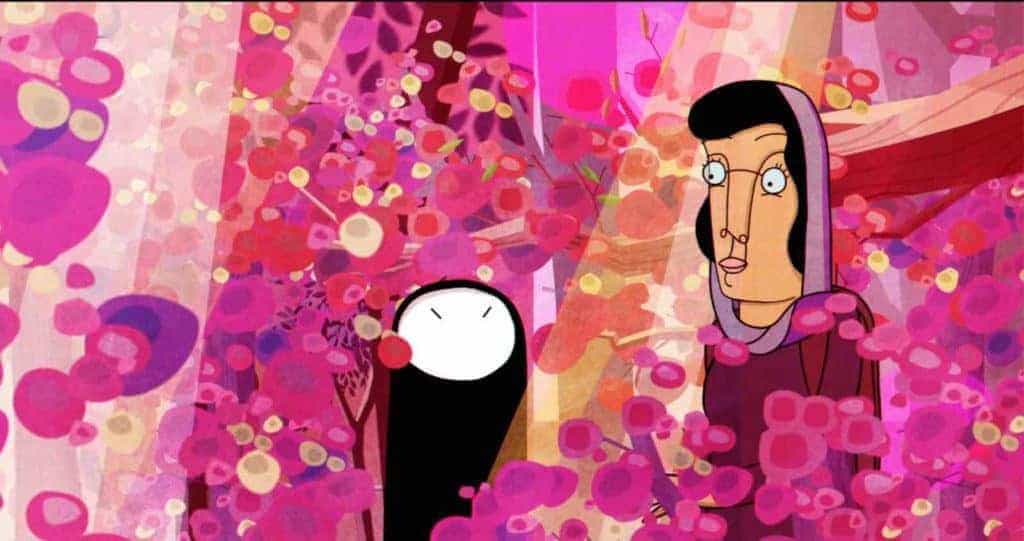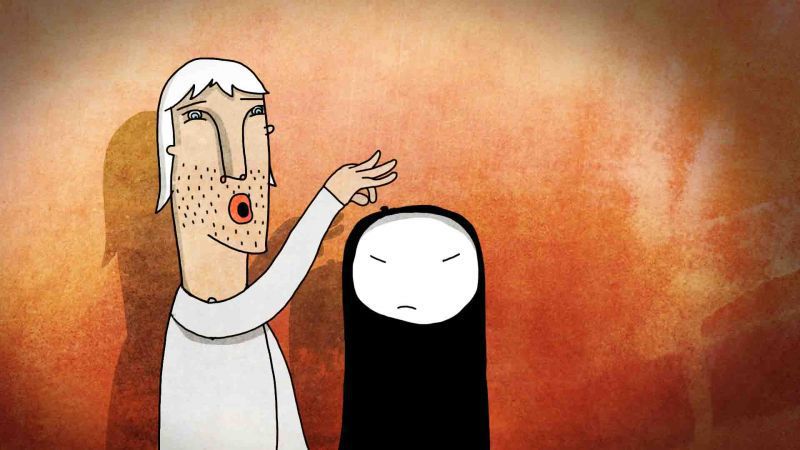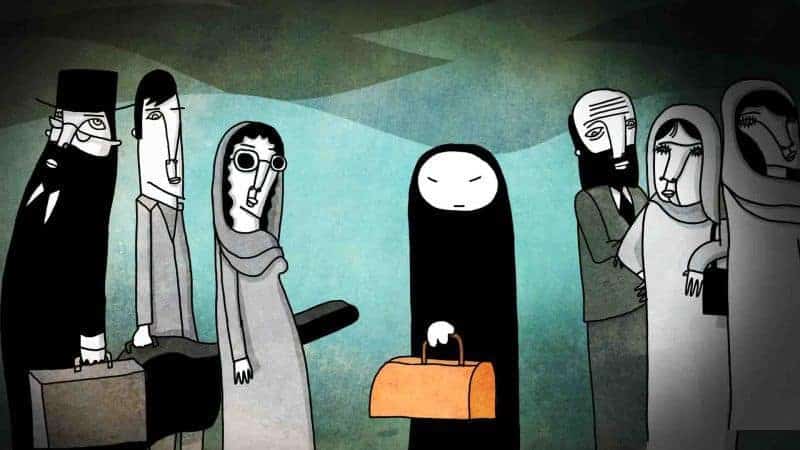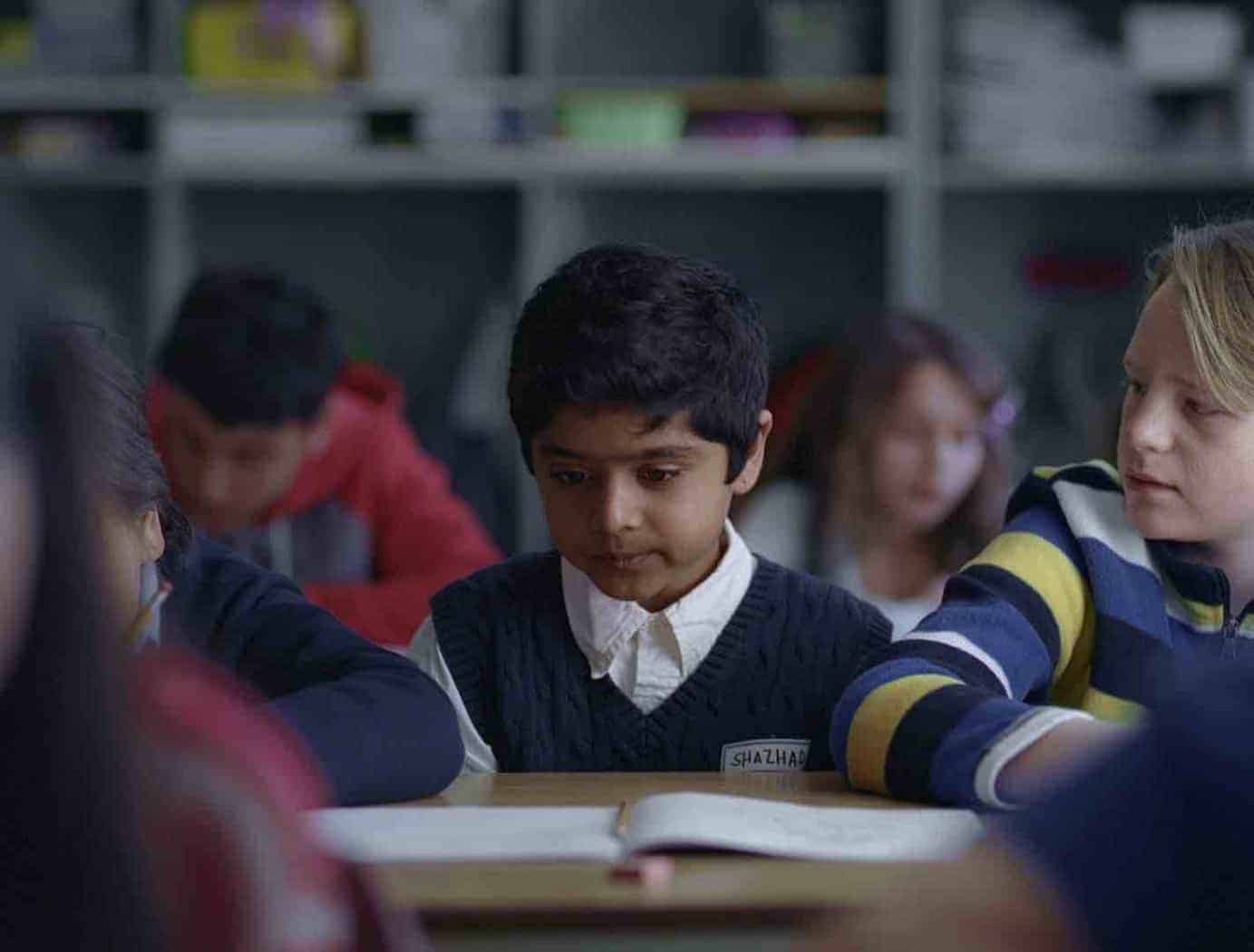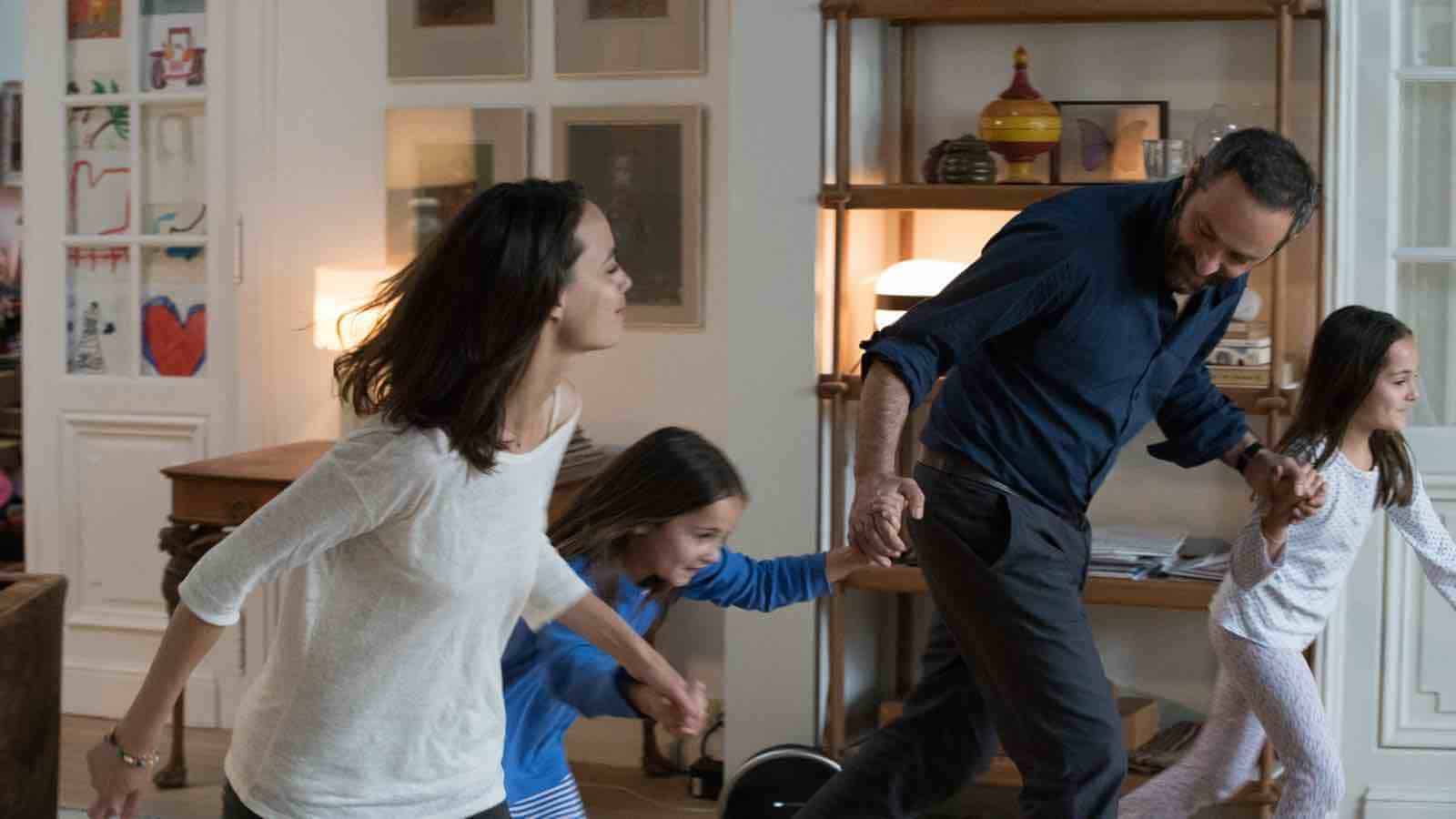In Window Horses, writer-director Ann Marie Fleming gets very specific about the alienation her poet Rosie has experienced as a Chinese-Iranian Canadian, and in turn, finds something more universal about displacement and the diaspora.
Director Ann Marie Fleming’s Window Horses is an NFB-sponsored animated feature about a mixed race poet trying to figure out who she is. The poet is Rosie (Sandra Oh), a twenty-something food service worker who dreams of going to Paris but has to settle for Shiraz, in Iran, when she’s invited to a poetry conference there. It also happens to be her father’s hometown –, the father who left her when she was very young.
All of the characters in the film except for Rosie have racial identifiers and: they’re fully realised illustrations of human faces. Rosie, however, is drawn as a stick figure: she has two lines for eyes, occasionally a line for a mouth, and two lines indicating hair sticking out in pigtails from her head. Her body is a straight line until she becomes clothed. This may be because her identity is still forming. She has an imagined, instinctive kinship with Paris, where she’s never visited, but as a second-generation immigrant, she lacks the linguistic or cultural identifiers of her heritage. Rosie is unfazed by this, but the film is the story of her coming to terms with her actual identity and Fleming signals Rosie’s initial blankness with how her character is visually designed.
In Shiraz, a whole new world opens up for Rosie. She meets colleagues her own age like Dietmar (Don McKellar) and mentors who immediately take her seriously, like Did (Jun Zhu) and Mehrnaz (Shohreh Aghdashloo). They’re all expecting to get a glimpse of her inner life from her work, which forces her to re-examine if her poems about Paris are really the best way to express herself. She has to ask tough questions about who she is, ones she’s never had to deal with before, so she can figure what she really wants to say.
The film’s key weakness is that it too often becomes didactic and educational as it teaches both Rosie and us about Iran. While in Iran, Rosie finds herself unravelling the mystery of what happened to her father, who went away one day when she was seven and never came back. She claims she’s over it, but she’s not. Part of that means learning about Iranian history and culture.
The gorgeous animation is most effective when there’s music or poetry being read. Multicoloured lines emanate from the mosque each morning, transporting music across the city. Each poem transports us into a new world with new sets of animation rules: a new aesthetic, new patterns, and a new way of thinking. It’s a remarkable visual representation of the power of writing.
By getting very specific about the alienation Rosie has experienced as a Chinese-Iranian Canadian, writer-director Ann Marie Fleming gets at something more universal about displacement and the diaspora. There’s not too much separating Rosie from Lionel in Dear White People who saw himself as too black for the white kids and too white for the black kids, leaving him completely in limbo. Like Lionel, Rosie has to reconcile her fractured identities in order to find her poetic voice. When she gets there, it’s incredibly moving.
Window Horses screens as a Special Presentation at the Toronto International Film Festival on Sun., Sept. 11 at 2 p.m. (Isabel Bader) and Tues., Sept. 13 at 4:45 p.m. (Scotiabank).
